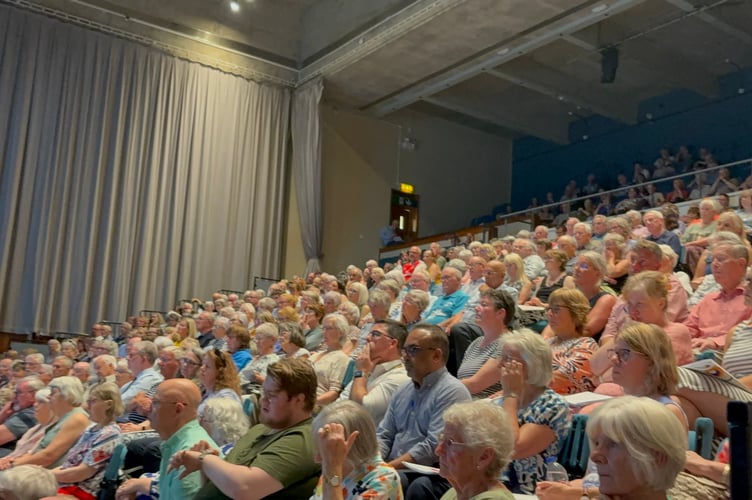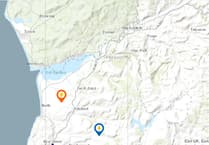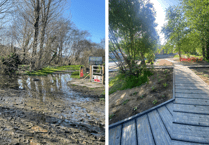A consultation into the future of health services in west Wales has thrown up 100 alternative ideas, Hywel Dda bosses have said.
A public consultation on the Clinical Services Plan, which closed on Sunday, 31 August, drew more than 4,000 responses and led to a large protest meeting in Aberystwyth’s Great Hall earlier this year, with people voicing concern over the future of stroke services at Bronglais Hospital.
The plan proposed turning the stroke unit at Aberystwyth into a treat and transfer centre.
Hywel Dda University Health Board says it will now explore the potential of more than 100 alternative ideas for nine healthcare services locally.
The Clinical Services Plan (CSP) looked at changes to critical care, dermatology, emergency general surgery, endoscopy, ophthalmology, orthopaedics, stroke, radiology and urology across the health board’s four main hospitals.
The Health Board and an independent company, Opinion Research Services, are now reviewing around 4,000 responses to a questionnaire as well as feedback from events and engagement activities.
This includes people’s views on the impacts of options put forward in the consultation, which options they think best deal with the challenges services face, and the new ideas shared.
New ideas, across all nine services, will be considered as part of the same process that led to the options presented in the consultation.
Medical Director Mr Mark Henwood explained: “We have been really pleased with levels of engagement in the consultation from our communities. This has presented to us new ideas which we need to explore and to do justice, will need to go through the same thorough process as options presented in the consultation.”
Whilst the board will receive an update on the work to collect and review feedback from the consultation in its November 2025 meeting, an extraordinary Board meeting to make decisions on the future of the nine service, will now take place in February 2026. It is planned to publish a consultation report in January 2026 ahead of Board making their decision.
The initial work in reviewing ideas involves assessing if they meet criteria, known as hurdle criteria. For this consultation, the hurdle criteria are that potential options should be clinically sustainable, deliverable, accessible, aligned or at least not opposed to the Health Board’s long-term strategy, and financially sustainable.
A group of representatives including staff, stakeholders and patient representatives will provide insight into the possible accessibility impacts of these ideas, such as what they might mean for patients and communities accessing care. Then an options development group will score options that meet the hurdle criteria to help assess an option’s strengths and weaknesses.
Mr Henwood added: “We cannot speculate at this stage on which ideas will become options, but the whole consultation process is both challenging and supporting work done to date and ensuring we have a range of strong options for the future.”
The Clinical Services Plan focuses on nine healthcare services in need of support and aimed at addressing fragilities, improving standards, or reducing waiting times for people in need of diagnosis and treatment.





Comments
This article has no comments yet. Be the first to leave a comment.